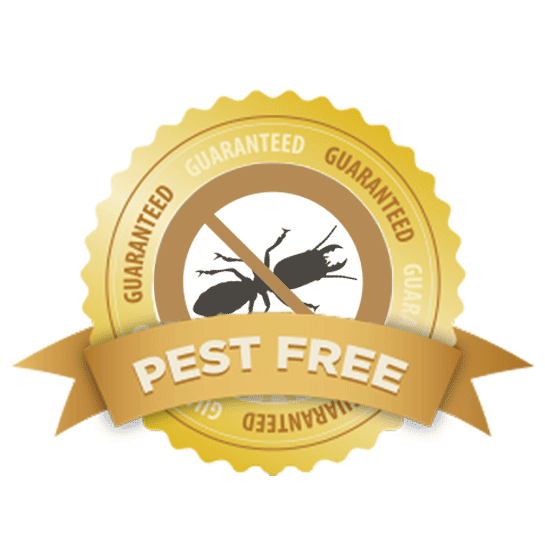Safe and Reliable Bug Control for Lasting Defense
Reliable insect monitoring requires a multifaceted strategy that balances ecological honesty with the requirement for effective insect suppression. The subtleties of these techniques may not be quickly clear, prompting a closer assessment of the methods that can lead to sustainable insect control results.
Recognizing Parasite Control Approaches
Insect control incorporates a range of methods focused on managing and eradicating undesirable insects and rats that can endanger both wellness and home. Comprehending these techniques is vital for efficient parasite administration.
The main categories of insect control methods include mechanical, organic, and chemical methods. Mechanical approaches involve physical barriers and traps to stop parasite entry and capture unwanted types. For example, utilizing displays on windows or using sticky catches can significantly decrease parasite populations without introducing harmful substances.

Chemical pest control is usually the most recognized technique, making use of chemicals to remove insects. These chemicals can be reliable however have to be used with caution to prevent damaging impacts on non-target types and the setting.
Advantages of Eco-Friendly Solutions
How can eco-friendly services transform bug control techniques? The fostering of eco-friendly bug control methods offers countless benefits, significantly improving the effectiveness and safety of parasite management (exterminator coquitlam). These solutions use natural ingredients, lowering the dependence on harmful chemicals that can pose threats to human health and wellness and the setting. This shift not only secures family pets and households however likewise reduces the possibility for soil and water contamination.

One more benefit is the favorable effect on local biodiversity. Green solutions are designed to target particular insects while preserving advantageous insects and wild animals, promoting a balanced ecosystem. This technique lines up with the growing consumer demand for sustainable practices, boosting the track record of pest control suppliers.
Integrated Insect Monitoring Methods
The implementation of environment-friendly solutions normally leads to the fostering of Integrated Parasite Monitoring (IPM) strategies, which further enhance parasite control efficacy. IPM is an all natural strategy that incorporates numerous methods to manage insect populaces while lessening ecological impact. This method stresses the usage of biological, cultural, mechanical, and chemical controls, ensuring a well balanced and sustainable method of insect administration.
One basic element of IPM is the extensive analysis of bug task and environmental problems. By keeping track of bug populaces and identifying their life cycles, professionals can execute targeted treatments that interrupt the pest's habitat or lifecycle, reducing reliance on chemical pesticides. Furthermore, cultural methods such as plant turning and habitat adjustment can considerably reduce pest establishment and reproduction.
An additional crucial element is the usage of biological control agents, such as useful pests or microorganisms, which can naturally subdue parasite populaces. When chemical applications are essential, IPM prioritizes using low-risk pesticides and uses them selectively, lessening direct exposure to non-target organisms and humans.
Including IPM techniques not only enhances parasite control effectiveness yet additionally advertises a safer community, aligning with the expanding need for sustainable practices in insect management.
Safe Practices for Property Owners
Comprehending the significance of secure practices in pest control can equip home owners to successfully manage insect concerns while safeguarding their health and the environment. Executing non-toxic methods and preventative procedures is vital in minimizing direct exposure to dangerous chemicals.
House owners must initially evaluate their setting for conditions that attract parasites, such as standing food, water, and mess waste. On a regular basis cleaning and sealing access factors can discourage bugs from getting into the home. Utilizing natural deterrents, such as vital oils or diatomaceous planet, can provide reliable choices to chemical pesticides.
When chemical therapies are required, home owners should choose products that are specifically identified as secure for domestic usage. It is important to follow application standards meticulously to stay clear of too much exposure. Moreover, making use of targeted treatments in locations where pests are recognized, instead of blanket splashing, can substantially minimize chemical usage.
Last but not least, keeping open communication with parasite control specialists is crucial. House owners must ask about the security of products used and request green choices whenever feasible. By taking on these risk-free practices, property owners can produce a much healthier living setting while successfully managing pest issues.

Tips for Long-Term Protection
Developing a parasite management strategy that highlights long-lasting protection can substantially enhance the efficiency of the safe techniques formerly reviewed. To accomplish why not check here this, homeowners should implement routine inspections of their residential or commercial property, focusing on hidden areas such as attic rooms, cellars, and crawl areas. Early detection of insect activity is essential in stopping invasions from holding.
These practices minimize attractants that draw pests into the go to this website home. Securing entry points, such as cracks around doors and home windows, can successfully obstruct potential bug gain access to.
Landscape design ought to likewise be taken into consideration; maintaining plants trimmed and preserving a distance between greenery and the home reduces concealing areas for parasites. Making use of natural deterrents, such as necessary oils or diatomaceous planet, can better discourage problems without resorting to rough chemicals.
Finally, teaming up with a specialist parasite control service for regular analyses can supply an additional layer of security. These experts can offer customized referrals and progressed treatments, making sure that your home remains shielded versus insects in the long term.
Final Thought
In conclusion, secure and trustworthy bug control requires a complex approach that highlights green techniques and incorporated parasite monitoring. By applying natural deterrents, performing regular inspections, and maintaining correct cleanliness, property owners can dramatically minimize bug populaces while shielding useful insects and the atmosphere. Collaboration with expert bug control solutions boosts the effectiveness of these methods, guaranteeing tailored solutions helpful site that supply enduring defense and comfort against future problems.
Effective parasite administration requires a diverse approach that stabilizes ecological stability with the requirement for effective insect suppression. The adoption of green bug control approaches provides countless advantages, considerably improving the efficiency and safety of parasite monitoring.The execution of eco-friendly solutions normally leads to the adoption of Integrated Insect Monitoring (IPM) methods, which better enhance pest control efficacy. exterminator coquitlam. By monitoring parasite populations and recognizing their life cycles, specialists can execute targeted interventions that disrupt the insect's environment or lifecycle, lowering dependence on chemical pesticides.In final thought, safe and trusted parasite control requires a diverse technique that highlights green approaches and incorporated bug monitoring